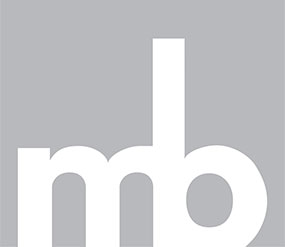 The history of attorney-client privilege has its roots in Roman times. Trial lawyers, known in Roman times as advocates, could not be called upon to be witnesses in a trial for which they were taking part. The close relationship between the attorney and his or her client necessitated protection of the communications between the two parties.
The history of attorney-client privilege has its roots in Roman times. Trial lawyers, known in Roman times as advocates, could not be called upon to be witnesses in a trial for which they were taking part. The close relationship between the attorney and his or her client necessitated protection of the communications between the two parties.
Attorney-client privilege was also protected in British courts for different reasons. Attorneys who testified as witnesses against their clients were considered untrustworthy, and their behavior was considered to be, “unbecoming of gentlemen.” Today, the reasoning behind attorney-client privilege is to encourage clients to be candid in communications with their attorneys. But there are a couple of things to know about attorney-client privilege.
It Only Protects Communications Relevant To Legal Advice
First, attorney-client privilege only protects communications between the lawyer and his or her client that were conducted for the purpose of obtaining legal advice. Information cannot be placed under the protective cloak of privilege merely because it was shared with a lawyer. Courts will look at the primary reason for which the attorney’s advice was sought. For example, if the client was seeking the attorney’s business advice, in most cases, this communication is not privileged. However, if the client is looking for legal analysis as it relates to his or her business, this could be protected.
Clients often believe simply copying or forwarding an email to their attorney or in-house counsel makes such communication privileged—it does not. Also, a document exchanged between the attorney and the client may be subject to privilege, but the facts themselves are not privileged. So if the facts can be obtained from another source, those facts may be introduced at trial. If you would like to make a discussion more likely to have the protection of attorney client privilege, include questions to your attorney that invoke his or her legal analysis.
It Only Protects Confidential Communication
Second, the communication must be intended to be confidential. Clients may forfeit this privilege by acting in a way that indicates they do not care if the communication is private. For example, there are several actions a client ought to avoid if he or she wants to maintain confidentiality. Do not repeat the conversation with the attorney to someone else. Avoid copying several other people on an email to the attorney. Generally, having a third party present during the conversation with the attorney also waives the privilege of confidentiality. The court may find exceptions to this third-party rule based on the precise role of the third party and whether the client intended his or her communications to remain private. If the third party is part of the lawyer’s staff or has experience relevant to the case, the communication may remain privileged. The discussion may also be considered confidential if the third party is acting in an advisory role or as an interpreter for the client.
Documents Are Only Protected If They Meet Certain Criteria
Besides attorney-client privilege, there are some provisions under the work product doctrine, which offers protection of confidentiality for materials prepared for trial. Work product doctrine is its own privilege, it does not have anything to do with the attorney-client privilege. States often provide their own degree of protection for the work product doctrine. Utah follows closely Rule 26 of the Federal Rules of Civil Procedure. When evaluating whether a document is protected by the word product doctrine, there are 3 relevant points to consider: (1) the material being protected must be tangible, such as a document, letter, or note; (2) the material must have been prepared by or for a party to the case or by the party’s representative; and (3) the material must have been prepared in anticipation of litigation.
In summary, a client looking to use either the attorney client privilege or the work product doctrine to maintain confidentiality of their documents in court ought to indicate and seek out the attorney’s legal advice, demonstrate his or her desire for the confidentiality of the communication, and ask the attorney’s opinion on the matter.
Brooke Groneman is a Registered Patent Attorney in Maschoff Brennan’s Salt Lake City office. Brooke assists clients with patent prosecution and other intellectual property matters.
